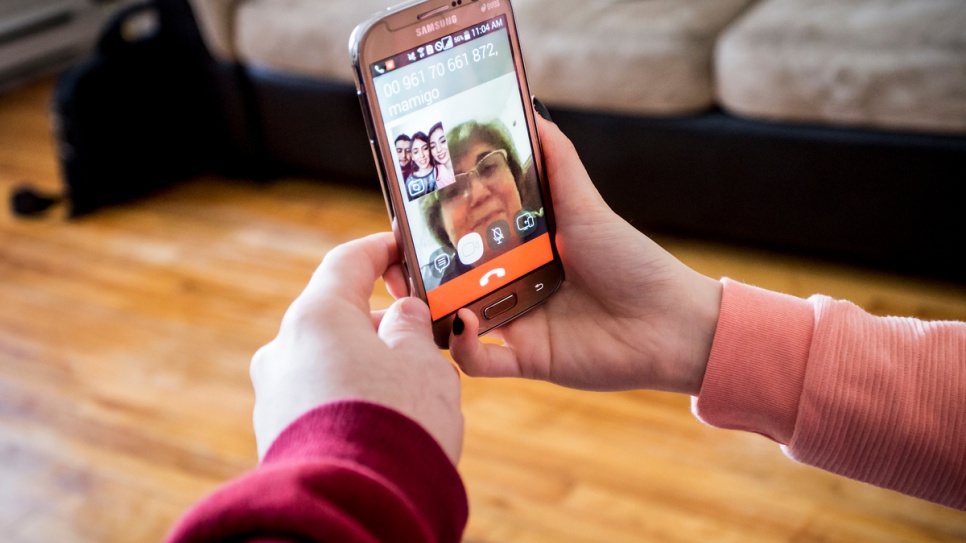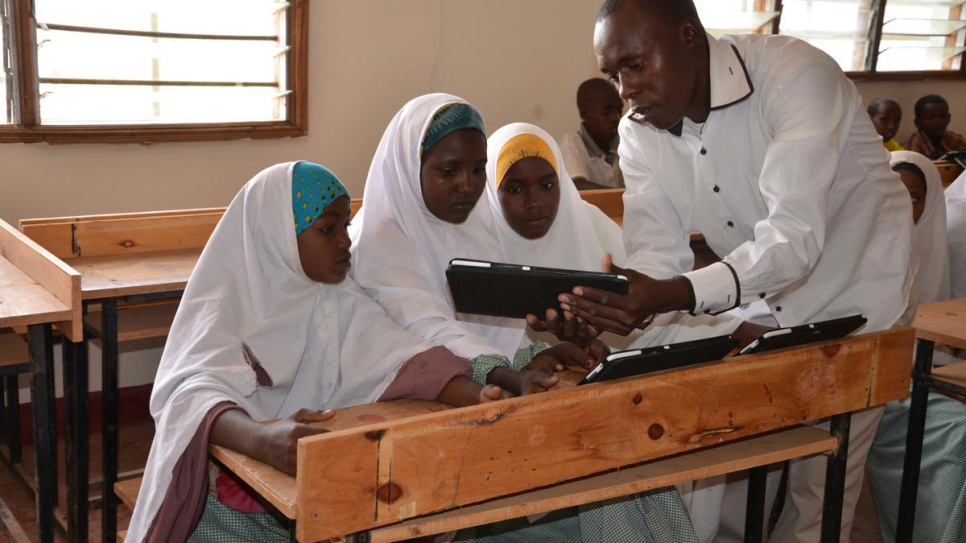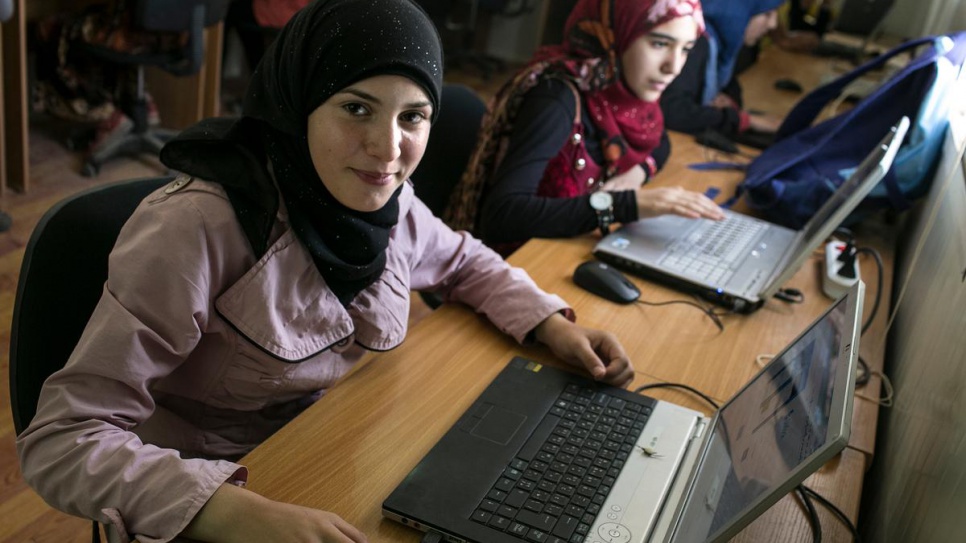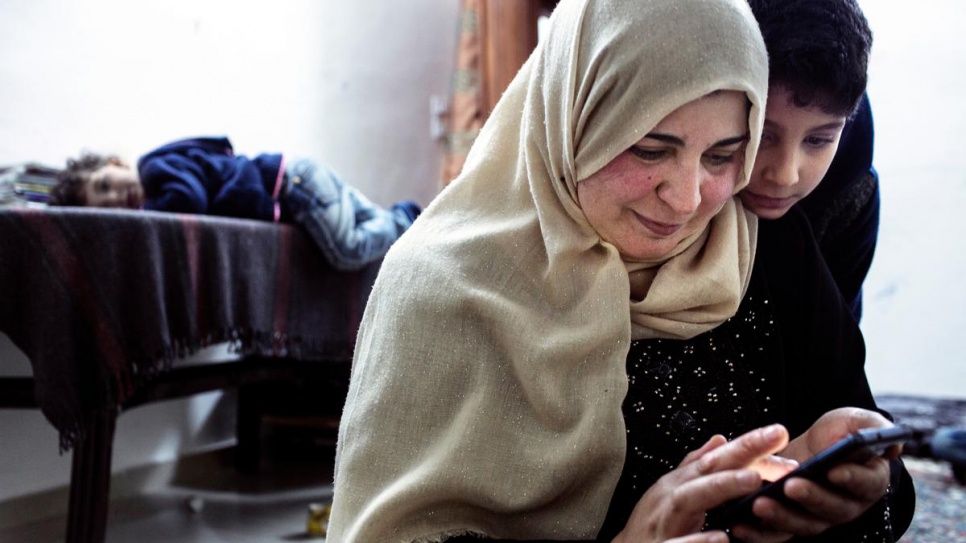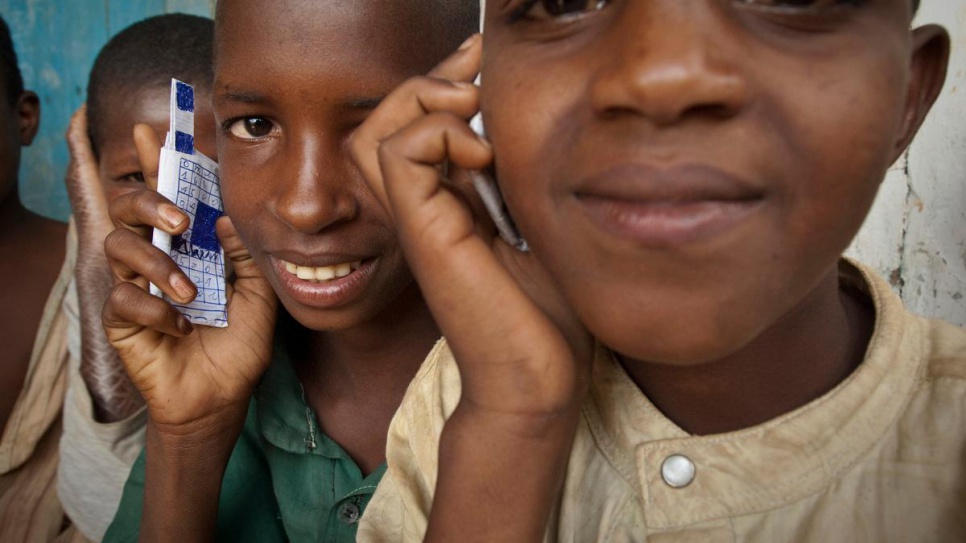Mobile connectivity a lifeline for refugees, report finds
New study by UNHCR and Accenture finds mobile phone and internet access is as critical to refugees' safety and security as food, shelter and water.
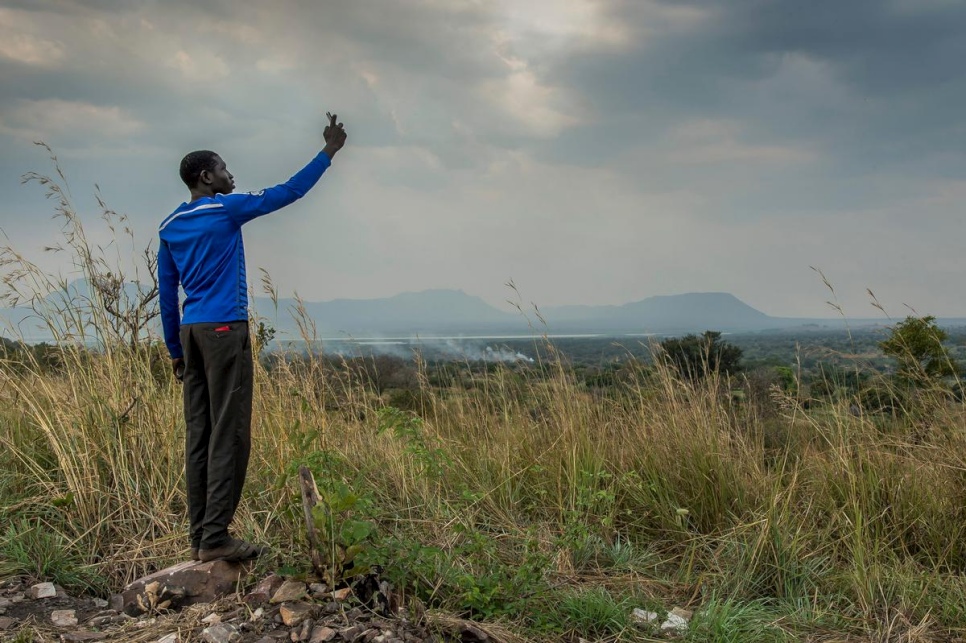
A young South Sudanese refugee tries to get a signal on his mobile phone in Nyumanzi refugee settlement, Adjumani, northern Uganda, in this 2014 file photo. © UNHCR/ Frederic Noy
GENEVA – As well as being essential for keeping in touch with loved ones, many refugees view access to a mobile phone and the internet as being as critical to their safety and security as food, water and shelter, according to a new report by UNHCR and Accenture.
The report, “Connected Refugees: How the Internet and Mobile Connectivity Can Improve Refugee Well-being and Transform Humanitarian Action,” is based on research undertaken in 44 countries on four continents. It shows that for many refugees a connected device is a lifeline and a critical tool for self-empowerment.
"In the world we live in today, internet connectivity and smart phones can become a lifeline for refugees."
The study finds that while affordability is often a barrier to connectivity, refugees living in urban areas tend to have similar access to mobile networks as other urban populations. But for refugees in rural locations the picture is very different, with only one in six located in areas with 3G access, and one in five having no mobile coverage at all – significantly lower than for the population at large.
"In the world we live in today, internet connectivity and smart phones can become a lifeline for refugees, providing an essential means for them to give and receive vital information, communicate with separated family members, gain access to essential services, and reconnect to the local, national and global communities around them,” said Filippo Grandi, the United Nations High Commissioner for Refugees.
“Most importantly, connectivity can help broaden the opportunities for refugees to improve their own lives and pursue a vision of a future that would otherwise be denied to them,” he added.
"Connectivity can help broaden the opportunities for refugees to improve their own lives."
The findings come at a moment when wars and persecution have driven more people from their homes than at any time since UNHCR, the UN Refugee Agency, began keeping records. At end of 2015, 65.3 million people were displaced worldwide, of whom 21.3 million were refugees.
Faced with a pressing need, the study recommends additional investments in three main areas, which together form the basis of a new UNHCR Global Strategy for Connectivity for Refugees. These include increasing the availability of mobile networks, improving affordability, and providing access to training, digital content and services.
The report also identifies a number of strategic interventions to help ensure connectivity, ranging from partnering with Mobile Network Operators and other technology and communications companies to improve infrastructure, making targeted investments in infrastructure, and enabling an environment and system for digital service delivery.
“Especially critical to this effort will be the engagement of the private sector, especially technology companies and mobile network operators. Accenture is particularly optimistic about the potential for UNHCR and the humanitarian community to work together with the private sector to improve the well-being and humanitarian support of displaced people through enhanced connectivity,” said Dan London, group chief executive of Accenture’s Health and Public Service business.
“Private-sector partnerships are essential to scale the connectivity interventions globally.”
Accenture is a leading global professional services company, providing a broad range of services and solutions in strategy, consulting, digital, technology and operations.
Drawing on the business model of the Accenture Development Partnership (ADP), the report also identifies ways to engage the private sector to solve the connectivity challenge, leveraging creative partnerships and smart investments. ADP harnesses the global capabilities and experience of Accenture to impact positively the lives of people in the developing world.
“Private-sector partnerships are essential to scale the connectivity interventions globally,” said Roger Ford, ADP managing director. “Companies and corporations bring global reach, innovative business models, experience in the communications and telecommunications industries, relationships with government regulators and financial and human resources, all of which will be instrumental to connecting the world’s refugee population.”

